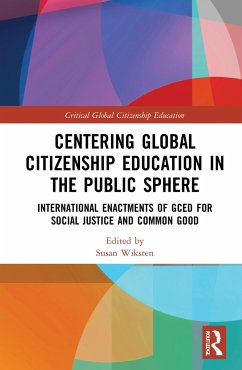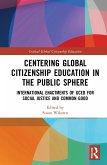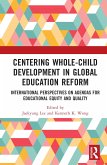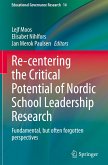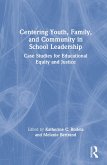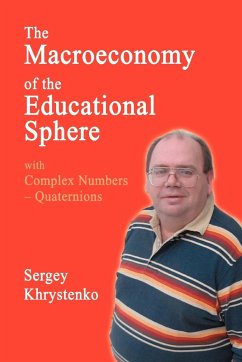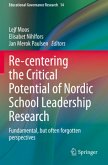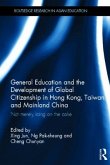This book brings together key perspectives from scholars in the Global South and Global North to illustrate diverse ways in which the UN's Global Citizenship Education (GCED) agenda can promote social justice and be used as a vehicle for negotiating and learning about diverse and shared objectives in education and the global public sphere. Recognizing the historical function of education as a prominent public sphere site, this book addresses questions around how forms of global education can serve as public sphere sites in various contexts today and in the future. Specifically, it questions established notions of education and proposes new interpretations of the relationship between practices of education and the public sphere to meet the needs of our contemporary turbulent era and a post-2020 world. By offering conceptual analyses, examples of policy and educational practices which promote global learning, democratic citizenship, common good, and perspective-taking, the text offers new critical understandings of how GCED can contribute to the public responsibilities and roles of education. Chapters consider examples such as non-formal adult education at the Mexico-US border, teachers' responsibilities in Japan and Finland, developments in education policy and practices in Brazil, civic religious teachings in Canada, online learning in the United States and China, and support to the participation of women in higher education in Pakistan. Given its unique approach, and the range of case studies it brings together, this book is a timely addition to the literature on education in the global public sphere. It will prove to be an invaluable resource for scholars working at the intersections of global education and transnational education policies, and for teachers involved in global education.
Hinweis: Dieser Artikel kann nur an eine deutsche Lieferadresse ausgeliefert werden.
Hinweis: Dieser Artikel kann nur an eine deutsche Lieferadresse ausgeliefert werden.

